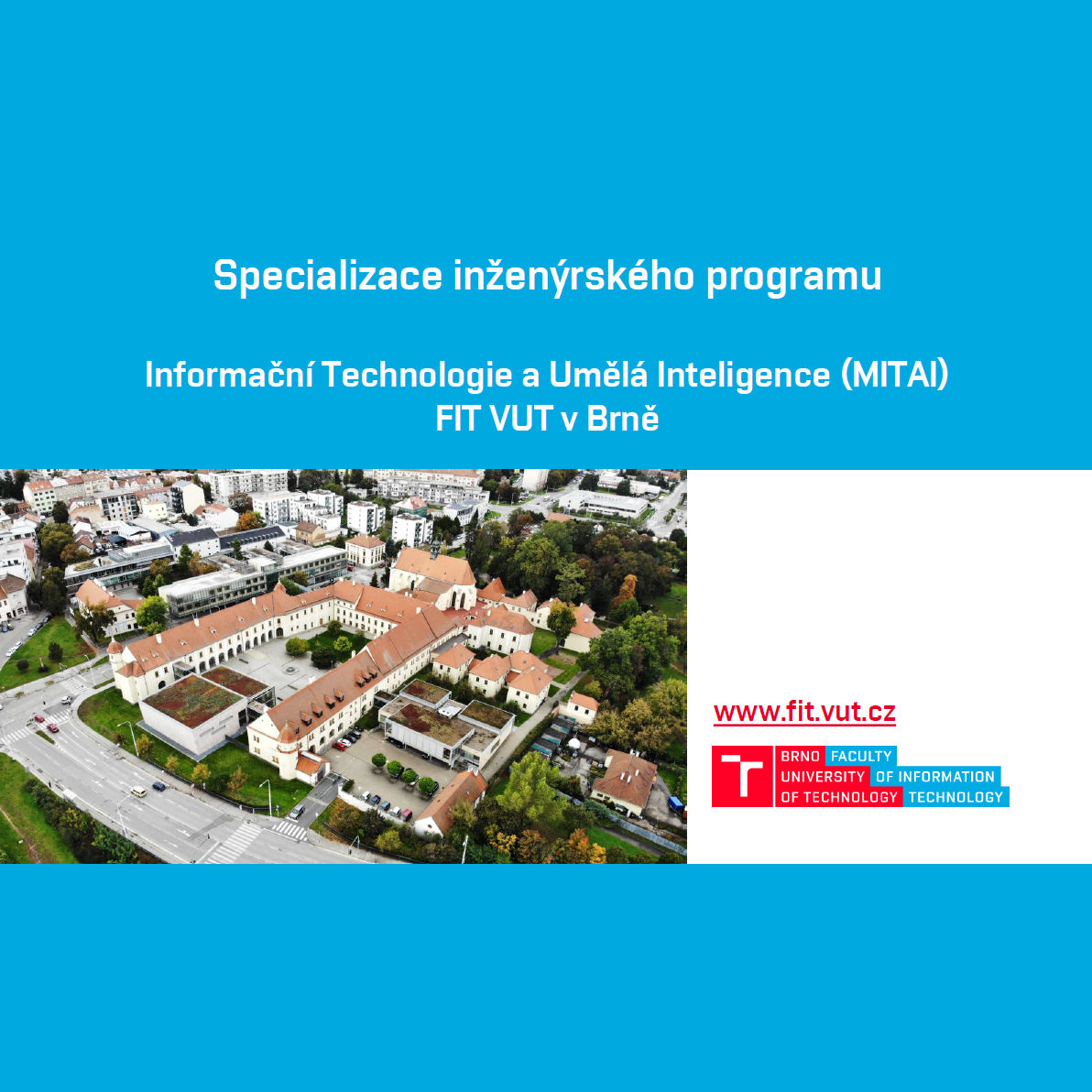Mathematical Methods
Acad. Year 2022/2023Full-Time Study2 Years Title Awarded Ing.
The specialization Mathematical methods is open in Czech language only. Matematické metody vám pomohou proniknout do základů informačních technologií. Na škole se je naučíte chápat a prakticky aplikovat. Prohloubíte si znalosti v oblasti matematiky, informatiky, teorie her, nebo automatizované analýzy, verifikace a testování korektnosti počítačových systémů. Po skončení studia se stanete žádanými specialisty - budete schopni aplikovat v praxi vysoce pokročilé moderní technologie, včetně těch nekonvenčních. Díky hlubokým znalostem algoritmizace se uplatníte v komerční sféře nebo v odvětvích zaměřených na vývoj a provoz náročných softwarových systémů.
1st Year
The common basis of the programme
The common core of the program consists of courses that will give you the knowledge important for all IT engineers:
- Computation Systems Architectures will teach you how to think about how your code will run on modern computing platforms, how to think about programming in a way that makes the most efficient use of resources, i.e., that your application makes the best use of the power of modern platforms, makes efficient use of system memory resources, and is also efficient in terms of energy consumed.
- Functional and Logic Programming will teach you that although classical imperative programming is a very widely used paradigm and is very close to machine-level implementation, there are other approaches that will give you a new perspective on some key problems and help you get novel and often more efficient solutions to them.
- Modern Trends in Informatics (in English) you need to know to see where the field is going and what to expect in practice in a few years.
- Parallel and Distributed Algorithms is a course that will show you the patterns, limits, and pitfalls of parallel and distributed algorithmic solutions and the associated synchronization mechanisms, without which you will hardly succeed in solving many of the more complex problems.
- Statistics and probability is the right hand of every engineer to process numerical results of experiments or data obtained while running your application, analyze them and learn from them to make further decisions is almost his daily bread.
- Theoretical Computer Science shows the limits of computer science capabilities through formal languages and mathematical models of computation. This is the only way to understand whether your problem is even solvable and, if so, with what resources and means to prove it.
- Data Storage and Preparation, especially big data, and extracting knowledge from it is a valuable art to any computer scientist. It is a key aspect that strongly influences the effectiveness of many solutions and applications.
- Artificial Intelligence and Machine Learning is a course where you will learn how to teach computers to understand our world and make them solve problems that are easy for humans but difficult for an algorithmic machine to handle.
They will pass on all their knowledge and hold you in difficult moments
Doc. Mgr.
Rogalewicz Adam
Ph.D.
Doc. RNDr.
Češka Milan
Ph.D.
Prof. RNDr.
Češka Milan
CSc.
Doc. Mgr.
Holík Lukáš
Ph.D.
Ing.
Hrubý Martin
Ph.D.
Prof. RNDr.
Meduna Alexander
CSc.
He is a theoretical computer scientist and expert on compiler design, formal languages and automata. Formerly, he taught theoretical computer science at various Asian, European and American universities, including the University of Missouri, where he spent a decade teaching advanced topics of formal language theory. He wrote over ninety scientific papers and several books.
Prof. Ing.
Vojnar Tomáš
Ph.D.
Tomas likes to work on the edge between mathematics, formal methods, and their applications in computer science and engineering. He is interested in static analysis and verification with formal roots but also dynamic analysis and testing. He lectures on operating systems too. Apart from the factual contents of the different courses, he strives to teach students to think systematically and to precisely formulate their ideas.
What are we talking about?
-
This year, during the matriculation ceremony (September 12), the traditional Zdena Rábová Award was presented, which recognizes outstanding students from our faculty for their active involvement in science and research and for enhancing the overall prestige of FIT. …
-
onsemi honored BUT Rector for his contribution to development of Czech semiconductor industry
(PR, Brno, 28. 8. 2025) The Czech semiconductor industry is currently facing a shortage of approximately three thousand qualified professionals. To address this, the National Semiconductor Strategy—the government’s initiative to enhance the Czech Republic’s standing in the global semiconductor sector—prioritizes the development of human capital and the advancement of education in this field. …
Come to FIT!
Other Master
Specializations
-
Application Development
-
Bioinformatics and Biocomputing
-
Computer Graphics and Interaction
-
Computer Networks
-
Computer Vision
-
Cyberphysical Systems
-
Cybersecurity
-
Embedded Systems
-
High Performance Computing
-
Information Systems and Databases
-
Intelligent Devices
-
Intelligent Systems
-
Machine Learning
-
Mathematical Methods
-
Software Engineering
-
Software Verification and Testing
-
Sound, Speech and Natural Language Processing
